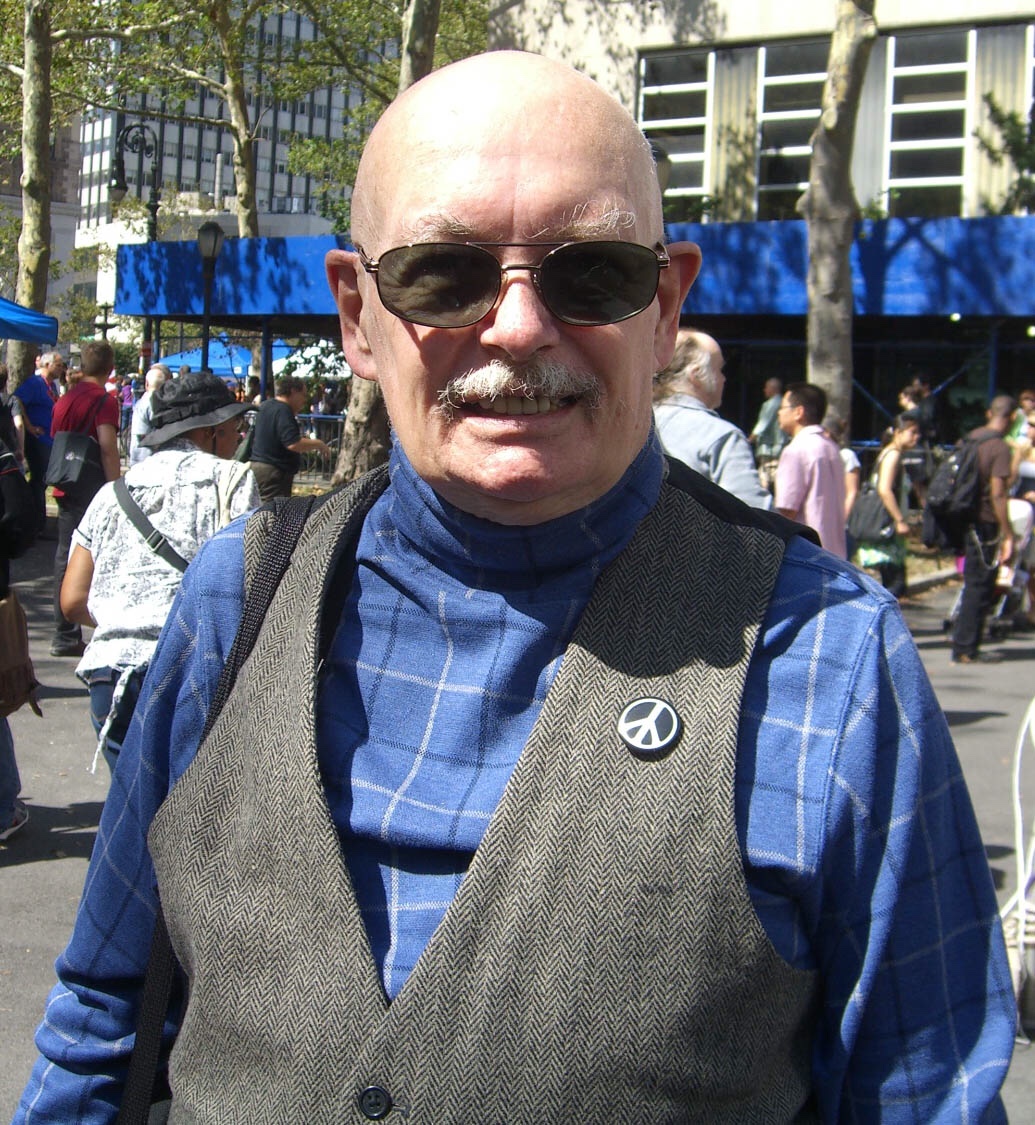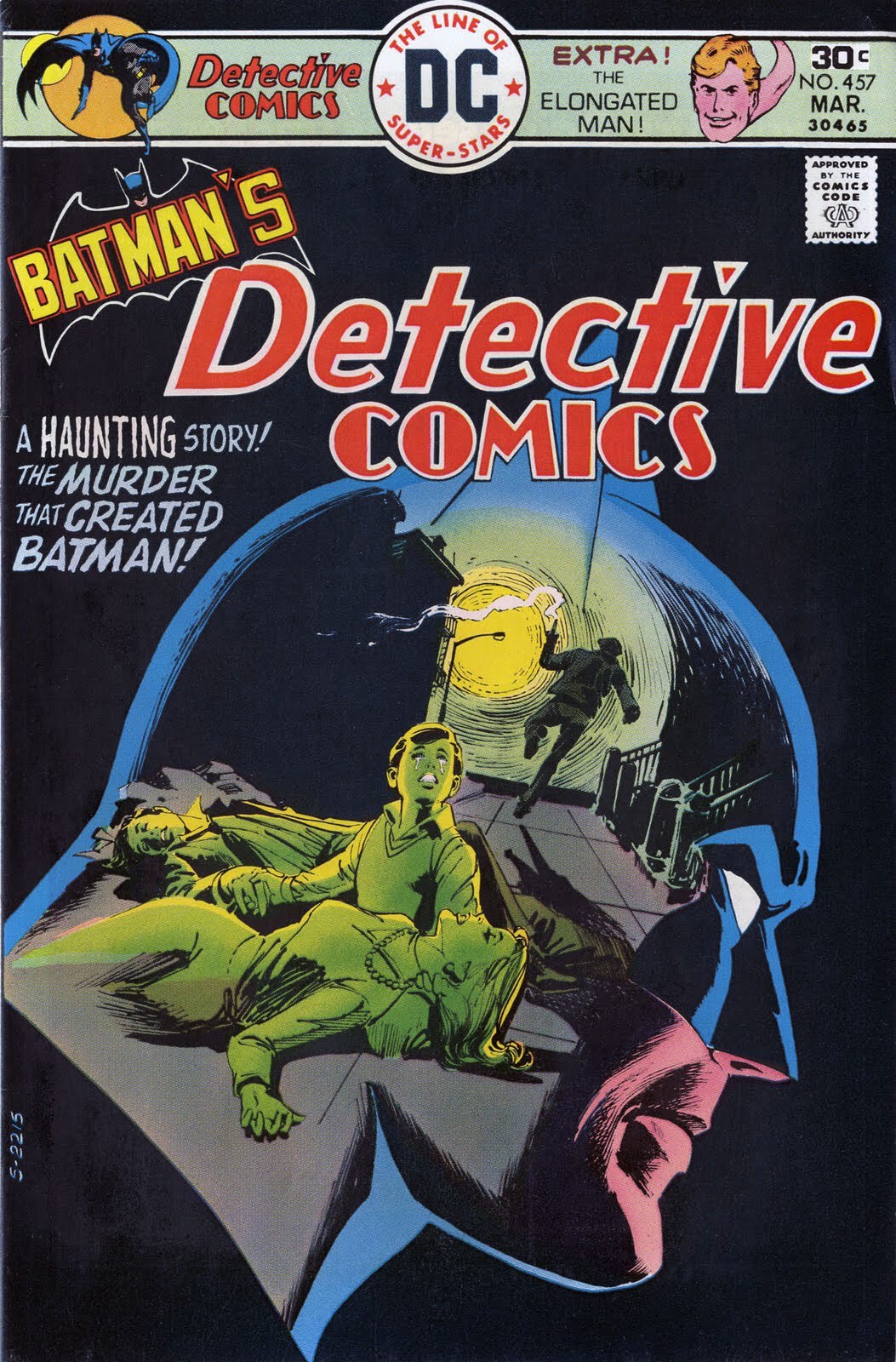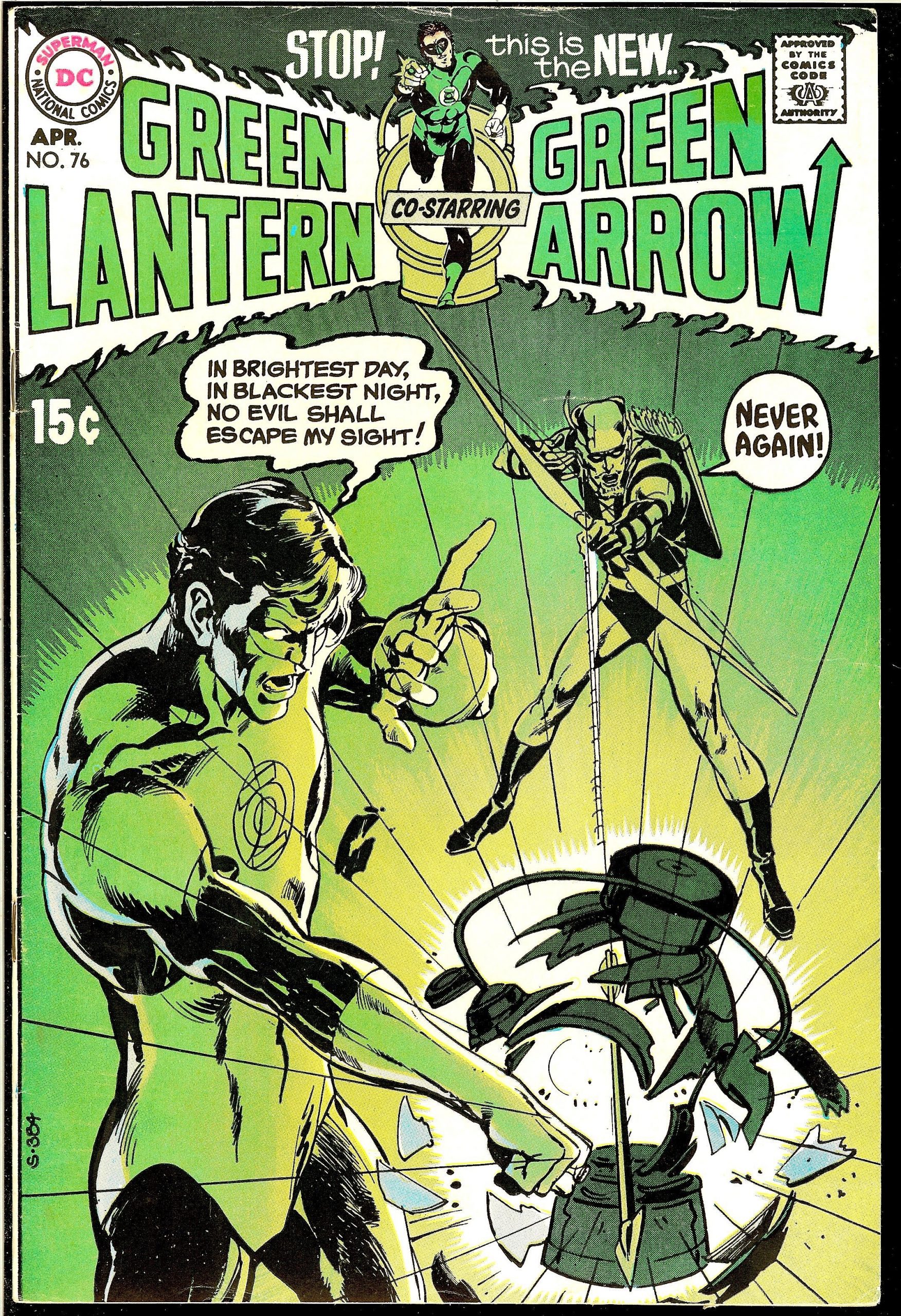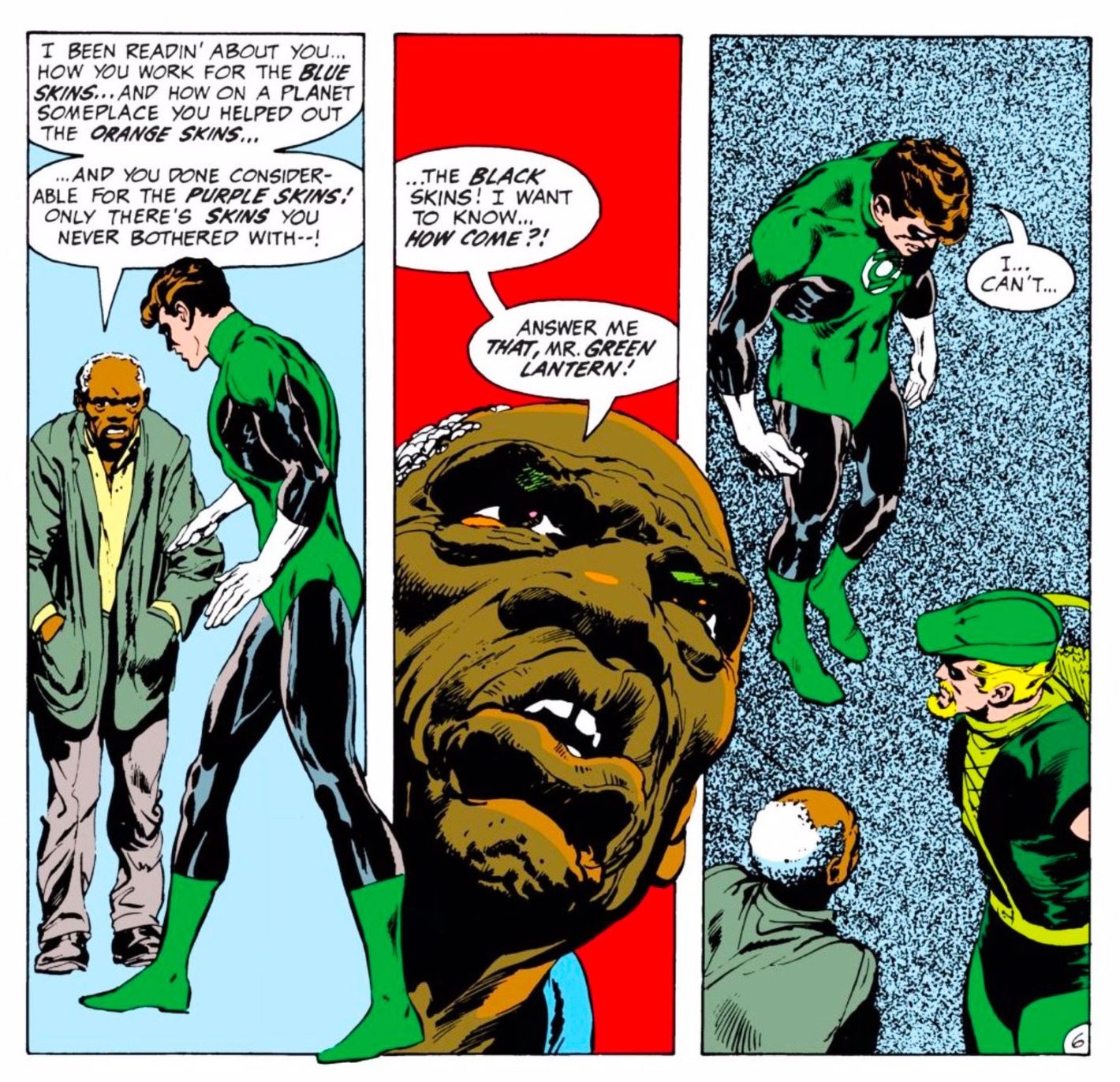
There have been many tributes paid to mark the passing of American comics legend, writer and editor Dennis “Denny” O’Neil, who has died, aged 81, of natural causes.
There are so many stories he will be remembered for, and many comic creators have been paying deserved tribute to him this weekend.Both his friends, and those he gave a start to in the industry, along with many who his work and creations inspired them.
He will be much missed.
“Make me laugh. Make me cry. Tell me my place in the world. Lift me out of my skin and place me in another. Show me places I have never visited and carry me to the ends of time and space. Give my demons names and help me to confront them. Demonstrate for me possibilities I’ve never thought of and present me with heroes who will give me courage and hope. Ease my sorrows and increase my joy. Teach me compassion. Entertain and enchant and enlighten me. Tell me a story.” – Denny O’Neil, from The DC Comics Guide to Writing Comics

Born in 1939, the same year that Batman first appeared in Detective Comics, his bio for a regular column he wrote for ComicMix until 2017 suggests it was was thus perhaps fated that he would be so closely associated with the character – writing and editing the Dark Knight for more than 30 years.
He also wrote episodes for TV shows Batman: The Animated Series and G.I. Joe: A Real American Hero, among others. He also taught at Manhattan’s School of Visual Arts and wrote The DC Comics Guide to Writing Comics.
As an editor at Marvel and DC Comics, in addition to Batman, he worked on Spider-Man, Daredevil, Iron Man, Superman, Wonder Woman, Green Lantern/Green Arrow, The Question, The Shadow and more. Along the way, he won every major award in the industry, and many of his prose novels were New York Times bestsellers.
Denny began his professional career as a reporter in Missouri, and it was a series of articles he wrote in the mid-1960s about the comic book industry that caught the attention of Marvel editor Roy Thomas. He soon started writing for comics, initially for Marvel, then Charlton Comics, and in 1968 he contributed his first stories to DC.
In a tribute, DC Comics notes Denny quickly became one of the company’s most influential contributors, writing six or seven stories a month.
His breakthrough came in 1970 when he and artist Neal Adams started working on Batman. The pair forged a grittier version of the Caped Crusader than the jokey character popularised through the 1960s TV series whose influence has a long reach on the comic, returning the character back to his earliest days as the ominous Dark Knight of Gotham City.
“Denny modestly described it as a return to the character’s roots, but it was much more than that,” said DC Chief Creative Officer and Publisher Jim Lee. “They channelled the zeitgeist of the times and brought to life a darker, more evocative yet grounded take on Batman.”
O’Neil and Adams continued their partnership with some wide ranging and, for DC, groundbreaking Green Lantern/Green Arrow stories, “Hard Traveling Heroes”, tales that won numerous awards, tackling subjects such as drug addiction, racism, and other social ills.

Green Lantern/Green Arrow #76, published in 1970, borrowed from Marvel Comics’ propensity toward argumentative superheroes, but with Green Lantern and Green Arrow, their struggles were ideological debates. “GL”, a power-ring-wielding intergalactic cop, represented the conservative right, while “GA was the voice of the streets, of the left,” explained writer Denny O’Neil in the 2003 documentary Comic Book Superheroes: Unmasked.
O’Neil recalled he drew on his own experience when writing the story. “I was living in a slum,” O’Neil told Vulture in 2018. He was dwelling in the hellscape that was 1970s downtown Manhattan and chose to have GL and GA encounter urban poverty – particularly black poverty – up close.

However, asked if he felt some kind of progressive fervour while hammering out his story, he demurred. “What that story’s about is something that concerned me as a husband, father, et cetera, et cetera, but at some point, you just sit down and do the job,” he said. “I met the deadline, I got the story in on time, and went to work on the next one.”
Sadly, the market was unprepared for its level of sophistication and Green Lantern/Green Arrow was cancelled with Issue #89 (1972). As this article on Britanica.com notes, Green Lantern/ Green Arrow put the industry on notice, however, proving that superheroes’ exploits could involve matters beyond skirmishes with super villains.
At Marvel in the early 1980s, he worked with Frank Miller on Daredevil and enjoyed a memorable run on Iron Man. He returned to DC in 1986 to supervise and edit the Batman titles, a post he held until his retirement in 2001.
“I’m still in shock from the news that Denny O’Neil has passed away,” commented artist and writer Mike Grell. “We were friends for almost fifty years and his death is a gut-punch that still has me reeling. He gave me my whole career, starting when I first read Green Lantern/Green Arrow when I was in Saigon in 1970. His writing woke me up to what comics could really be and started me on this path… he was my hero.”
“Denny was an amazingly talented writer and editor,” said Bob Harras, Editor-In-Chief, DC, of Denny’s passing. “More than that, he was a beloved member of the DC family, and he will be sorely missed.”
“”I’m heartbroken,” said writer and editor Gerry Conway. “Denny was my mentor, my big brother, and my friend during my earliest years in comics. His influence on my personal growth as a human being can’t be overstated. Our field has lost a giant.”
“Words cannot express what Denny meant to me and so many others,” wrote Marvel’s creative director Joe Quesada, who co-created Batman character Azrael with O’Neil. “I learned more in the short span of time that I was fortunate enough to work with both He, and Archie Goodwin, than perhaps the entirety of my years in the biz. A brilliant writer, editor, and true gentlemen.”
“When I started in the business, there were certain editors who had my respect the instant I walked in the room,” noted writer J.M DeMatteis, “simply because of who they were, what they’d accomplished. Denny O’Neil was one of those editors. How fortunate I was to learn from one of the very best.”
“Deeply saddened to hear of the death of Denny O’Neil,” said writer Alan Grant. “Way back in the day, Denny’s and Neal Adams’ version of Batman was the only thing that kept me reading comics – and to think I ended up working for him! Denny was the best editor I ever had, and we became firm friends. Sue and I holidayed with Denny and his wife MariFran many times in the United States, and they stayed with us when they were in Britain. He leaves behind many happy memories of our times together. I will never forget him.”
“He was a kind man with an acerbic edge, a giving soul, wickedly funny, and an incredibly talented writer who penned some of the greatest comic stories ever told,” says artist Bill Sienkiewicz.
“He took time out of work life to become a friend, one who generously gave of his personal time to talk from experience and of demons, to a young farm kid from New Jersey about the path of self-destruction [said] farm kid was heading down because of farm kid’s drinking. Not many folks will step up like that. Denny did, and I will be forever grateful.”
“We’ve lost a hero,” noted artist and writer Neal Adams. “Denny O’Neil has died after having filled our lives with the pleasure of his work.
“Why was, and how was, Denny so special and important?
“Like Hemmingway, writing is a result of the life you led before setting pen to paper. Denny was a reporter on the Night Beat. His life wasn’t filled with monsters, ray-blasted cities, exploded worlds and the like.
“His was a dirty underbelly of urban sprawl, domestic violence, and bloody hospital emergency rooms.
“And when Denny wrote comic books he did not forget any of that for one minute. Personal violence in dark places peppered his work and made it personal to the reader. Denny O’Neil changed comics for the better. Could be it’s time to relearn some of those lessons. Lessons for which Denny O’Neil was and remains the best teacher.
“Crack some of those books and give them a read. That’s pure Denny O’Neil. Share the pleasure with me.”
Our sympathies to family and friends at this time.
Dennis “Denny” O’Neil, born 3rd May 1939, died 11th June 2020
WEB LINKS
• DC Comics: Dennis “Denny” O’Neil, 1939 – 2020
• Denny O’Neil – Comic Credits (Wayback Archive of the Comics Database)
• Denny O’Neil’s columns for ComicMix
• CBR: The Greatest Stories Denny O’Neil Ever Told
• Vulture: Green Lantern No. 76 Was the Moment Superhero Comics Got Woke
The founder of downthetubes, which he established in 1998. John works as a comics and magazine editor, writer, and on promotional work for the Lakes International Comic Art Festival. He is currently editor of Star Trek Explorer, published by Titan – his third tour of duty on the title originally titled Star Trek Magazine.
Working in British comics publishing since the 1980s, his credits include editor of titles such as Doctor Who Magazine, Babylon 5 Magazine, and more. He also edited the comics anthology STRIP Magazine and edited several audio comics for ROK Comics. He has also edited several comic collections, including volumes of “Charley’s War” and “Dan Dare”.
He’s the writer of “Pilgrim: Secrets and Lies” for B7 Comics; “Crucible”, a creator-owned project with 2000AD artist Smuzz; and “Death Duty” and “Skow Dogs” with Dave Hailwood.
Categories: Comic Creator Spotlight, downthetubes Comics News, downthetubes News, Features, Obituaries, US Comics
 In Memoriam: Comic Artist Neal Adams
In Memoriam: Comic Artist Neal Adams